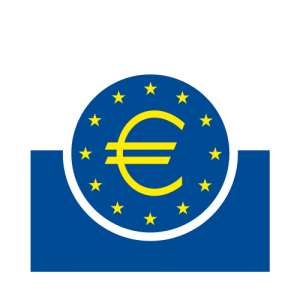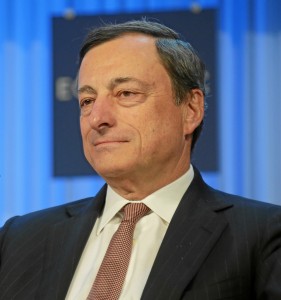
In a press conference after the latest meeting of the European Central Bank’s (ECB) Governing Council, the ECB’s President Mario Draghi, has outlined that Quantitative Easing (QE) options have been discussed at the meeting. Markets have been caught wrong-footed, as not many players have been expecting this monetary policy tool to have been talked about at the meeting.
After the press conference concluded, the Euro has hit a new one-month low, while implied FX Volatility has picked up across the spectrum.
As pretty much any foreign exchange broker has noticed, volumes in the past couple of quarters have been nowhere near levels observed in the first half of 2013. There is a fair reason for that too - the unprecedented amount of monetary stimulus that has been unleashed by the Bank of Japan last April has caused a spike in expectations that was unlikely to be sustained for a long period of time.
So let’s come back to the question pointed out in the title of this article - could the ECB be the main factor behind Euro volatility that can spread across the FX space in the near future?
Key Takeaways From The ECB Press Conference

Mario Draghi, President of the ECB
The ECB’s press conference yesterday was opened by Mario Draghi outlining that “the Governing Council is unanimous in its commitment to using also unconventional instruments within its mandate in order to cope effectively with risks of a too prolonged period of low inflation.” After a journalist's question asking whether these instruments included Quantitative Easing (QE), Mr. Draghi replied that “this statement says that all instruments that fall within the mandate, including QE, are intended to be part of this statement. During the discussion we had today, there was indeed a discussion of QE. It was not neglected in the course of what was actually a very rich and ample discussion.”
And the bomb fell onto the ground - the Euro has been sold off sharply and implied FX volatilities have finally been unlocked. The key question here is for how long will this renewed activity in the Forex market continue. As the ECB is getting worried about low levels of inflation and economists across the financial markets space start comparing the European economic climate to a Japanese style deflation spiral, heads are turning towards the central bank for action.
As Mr. Draghi has rightfully pointed out in his press conference, there is a big set of differences between the two economic regions especially when you compare the gargantuan scale of the housing and stock market bubbles that preceded the deflationary spiral in Japan. However the ECB is definitely concerned - with the latest Euro Zone Consumer Price Index data moving barely 0.5% on a year-on-year basis, fears are growing that deflation is around the corner - this is why the ECB is committed to its inflation target of less than, but close to 2%.
Quantitative Easing Unchained
So let’s assume that the ECB does indeed act and it introduces some form of QE. Interest rates on government bonds across the region are already low - Spanish and Italian government bond yields are trading close to 3.2% - compared that to the summer of 2012 just before another famous Draghi press conference, when the ECB committed to do “whatever it takes” to save the Euro and introduced its Outright Monetary Transactions (OMT) program, that is designed to purchase government bonds on the secondary market and paradoxically has never been used. At the time only the mention of the intentions of the ECB to commit all its available arsenal was enough to ensure a long round of stabilization of sovereign debt markets across the Euro Zone.
This time around, since the inflation data is ticking in lower, the main QE opposition across the ECB’s governing council might concede that conditions have changed. The circle around the German Bundesbank that is usually supported by most northern-European central bankers might be getting close to conceding that QE is inevitable.
It is true that the German public has been very negative about money printing since the times of the hyperinflation in the Weimar Republic, however instead of firming their anti-QE tone, German policymakers might actually be changing their minds as they see the deflationary risks across the Euro Zone emerging at a rapid pace.
Mr Draghi has opted to touch an important point in his press conference - the QE in Europe will be something different from the QE in the US (or Japan for that matter). The structural differences between the bank financing dependent European economy and the US capital markets dependent economy are substantial enough to drive the ECB to carefully discuss how might this program be enacted across the Euro Zone.
There is no doubt in our minds that we will be seeing additional interesting developments across the foreign exchange spectrum in the coming months. The ECB seems committed one way or another to unlock the stagnant European credit market. The second quarter of 2014 might just be the time when we know how this will unfold the foreign exchange market is certainly going to follow its lead.


















